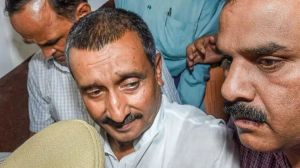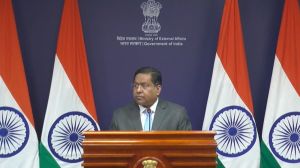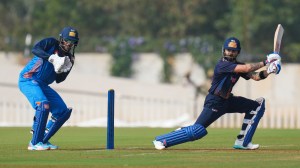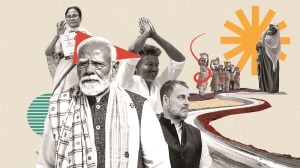Persist8230;
More than 13 centuries after they fled Iran to escape religious persecution and chose Gujarat as their home, Parsis are a worried lot as yet...

More than 13 centuries after they fled Iran to escape religious persecution and chose Gujarat as their home, Parsis are a worried lot as yet another Census bears out their rapid decline in numbers.
Census figures for Parsis have fallen from 76,382 in 1991 to 69,601 in 2001. This when worried community leaders had issued instructions that Parsis should co-operate with enumerators so that every member is accounted for. The community8217;s efforts have gone beyond that 8212; it has offered cash incentives and housing subsidies for couples planning a third child.
But all these hasn8217;t borne fruit.
In 1941 there were 1,14,890 Parsis in India, probably their highest tally since they landed in Sanjan in south Gujarat in 630 AD. Then the decline began. In Gujarat they hardly number around 10,000 now, though there are more in Mumbai, a city they have favoured for quite some time. 8216;8216;It8217;s alarming. If our number falls below 25,000 we may be reduced to a tribe and not a community,8217;8217; says Mumbai-based community leader Mehli Colah.
Parsis speak Gujarati and have managed to retain their religious and cultural identity, but what the community hasn8217;t been able to arrest is its rapid decline in numbers, fuelled by a host of factors like late marriages, inter-religion marriages, and the long-term ill-effects of inbreeding.
8216;8216;There were times when our community members used to marry at an early age and did not limit family size,8217;8217; says a high court advocate who prefers anonymity because, 8216;8216;I am one of the guilty Parsis who chose not to marry.8217;8217;
Resisting pressure from the community, Parsi girls marry outside the community. But orthodox Parsis don8217;t consider such girls as followers of Zoroastrianism and ban their entry in Parsi shrines.
Ahmedabad Fire Brigade8217;s deputy chief fire officer Mahernosh Dastoor says, 8216;8216;For the new generation marrying late or marrying outside the faith is a matter of comfort. You can8217;t deny them this personal choice. I may be against it but I can8217;t help it.8217;8217;
Surat-based Dr Ratan Marshal, the first Parsi to get a doctorate in Gujarati literature from Bombay University, says the trend to migrate to western countries has picked up recently. He says the community is not given fair treatment in Gujarat, that8217;s why many of them left the state. 8216;8216;They love Gujarat and want to stay back but politicians care little for them because they don8217;t have numbers,8217;8217; he says. The Parsi Panchayat Board, Surat, last month wrote to Chief Minister Narendra Modi requesting him to accommodate Parsis in high positions to prevent them from migrating.
Bombay Parsi Panchayat CEO Behram Dastoor says emigration and westernization could be reasons for this decline, but a study by the Tata Institute of Social Sciences is on. Says Dastoor: 8216;8216;I prefer allowing girls to marry outside the faith and accepting them, and their children, as Parsis.8217;8217;
- 01
- 02
- 03
- 04
- 05































